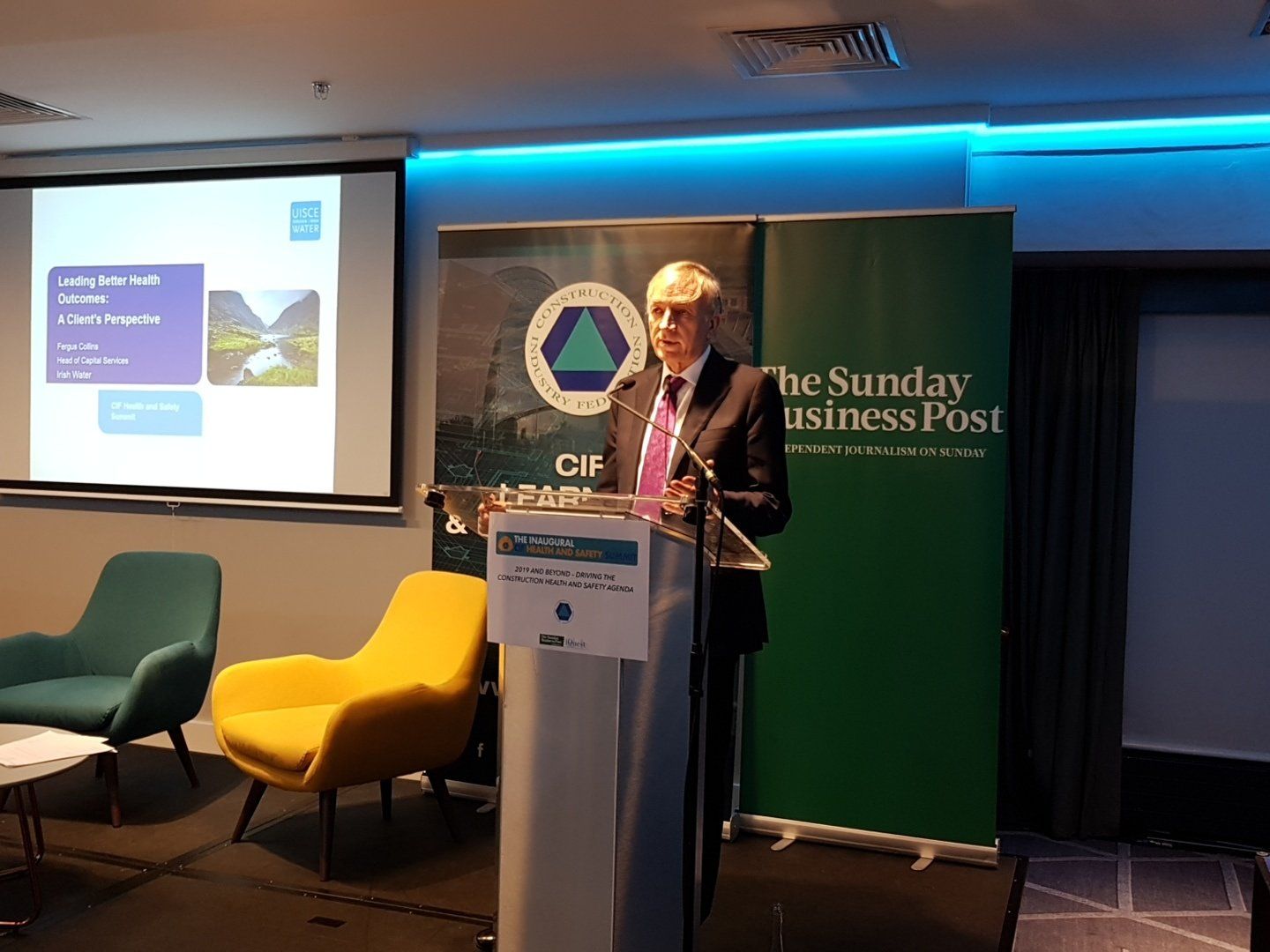The very first CIF Health & Safety Summit was held in Croke Park on Wednesday 28th November 2018 against the backdrop of expansion in construction activity, The Health and Safety Summit looked to 2019 and beyond and featured speakers from multiple sectors. They spoke about how the industry can manage challenges to create a healthier and safer workplace for all, how new technology can prevent illness and injury, and how investing in staff wellbeing today can help save money in the long-term.
Dermot Carey, Director of Safety and Training, Construction Industry Federation said: “The construction industry is on a strong growth trajectory driven mainly by ambitious Government targets in house building and infrastructure development. With this increase in activity comes an expanding workforce – new and returning workers adding approximately 112,000 people to the workforce over the next decade. This growth will bring an increase in occupational risk, so now is the time to reflect on our current health and safety procedures so workers can be busy and safe.
For decades the industry in Ireland has invested to ensure workers are safe on construction projects. Approximately 90,000 workers complete the Safe Pass Programme every year. However, progress and innovation are constant requirements in an ever-evolving working environment. We can never become complacent. Health and safety should be to the fore when planning every project regardless of its size.”
In his opening remarks, Frank Kelly, Construction Director, Walls Construction and Chair, CIF Safety Committee, spoke about factors which have improved Health and Safety in the construction sector in recent years:
“In the last 18 years, 1.7 million cards have been issued through the Safe Pass programme, 101,000 this year to date. This programme has provided a positive minimum entry level safety training to the industry.
The demands from Foreign Direct Investment companies imposing their requirement for higher standards in Health and Safety has also had a positive effect. As many FDIs working in jurisdictions outside of Ireland were exposed and experienced safe systems of work far beyond what was evident in Ireland previously. By imposing their requirements on the industry and, more importantly being willing to pay for those standards, Irish contractors found that to compete for these contracts it was necessary to develop their safety management systems. The industry rose to the challenge, and the requirements for best in class were successfully delivered.”
These requirements saw many companies developing and implementing safety management systems accredited to BS 18001 and the establishment of Safe T Cert.

